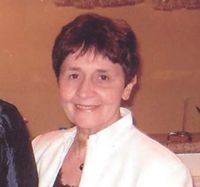First Reading (2 Samuel 7:1-5; 8-12; 14, 16)
 In today’s first reading, the prophet Nathan mediates the wisdom of Israel’s God to the great king David. David is concerned about physical dwelling places and understandably so: while he lives in a fine cedar palace, the ark of God that holds the stone tablets of the law, the ten commandments, is housed in a tent. God’s word, however, is that David is not the one to build God’s house, the temple. David is to be first in a long line of rulers who are to be ‘sons’ of God, ruling with the justice and the wisdom of God. History tells us that Israel’s experience of those rulers was for the most part one of limit, of disappointment. In the face of almost constant failure on the part of the kings, later prophets projected Israel’s hope into the future and looked for one who would truly have the characteristics of God, who would truly be ‘son of God’.
In today’s first reading, the prophet Nathan mediates the wisdom of Israel’s God to the great king David. David is concerned about physical dwelling places and understandably so: while he lives in a fine cedar palace, the ark of God that holds the stone tablets of the law, the ten commandments, is housed in a tent. God’s word, however, is that David is not the one to build God’s house, the temple. David is to be first in a long line of rulers who are to be ‘sons’ of God, ruling with the justice and the wisdom of God. History tells us that Israel’s experience of those rulers was for the most part one of limit, of disappointment. In the face of almost constant failure on the part of the kings, later prophets projected Israel’s hope into the future and looked for one who would truly have the characteristics of God, who would truly be ‘son of God’.
Second Reading (Romans 16:25-27)
These three verses form the conclusion of Paul’s letter to the Roman community. Some ancient manuscripts situate them elsewhere in the letter, while others leave them out. They proclaim Jesus as God’s ‘mystery’ kept hidden for endless ages and now proclaimed. We sometimes forget that we are among the peoples (translated ‘pagans’ in our text) who have been graced with God’s extraordinary revelation.
Gospel Reading (Luke 1:26-38)
In the gospel reading a new word of God is mediated through the angel Gabriel to a young Galilean Jewish woman, Mary of Nazareth. She is the one on whom God’s spirit, God’s favour, now rests. The prophecy of Nathan is fulfilled in the conception and birth of Mary’s son who is also, and especially, God’s Son. Mary’s response to the angel, ‘How can this be…?’ echoes the prayer of David that follows today’s first reading, ‘Who am I…and who are we that you have brought us to this point?’ The mysterious workings of God in our world invite just such a response. Let us pause to wonder at the goodness of our God at work in our own lives and in the lives of those who incarnate the love of God for us. Let’s name them, and give thanks.